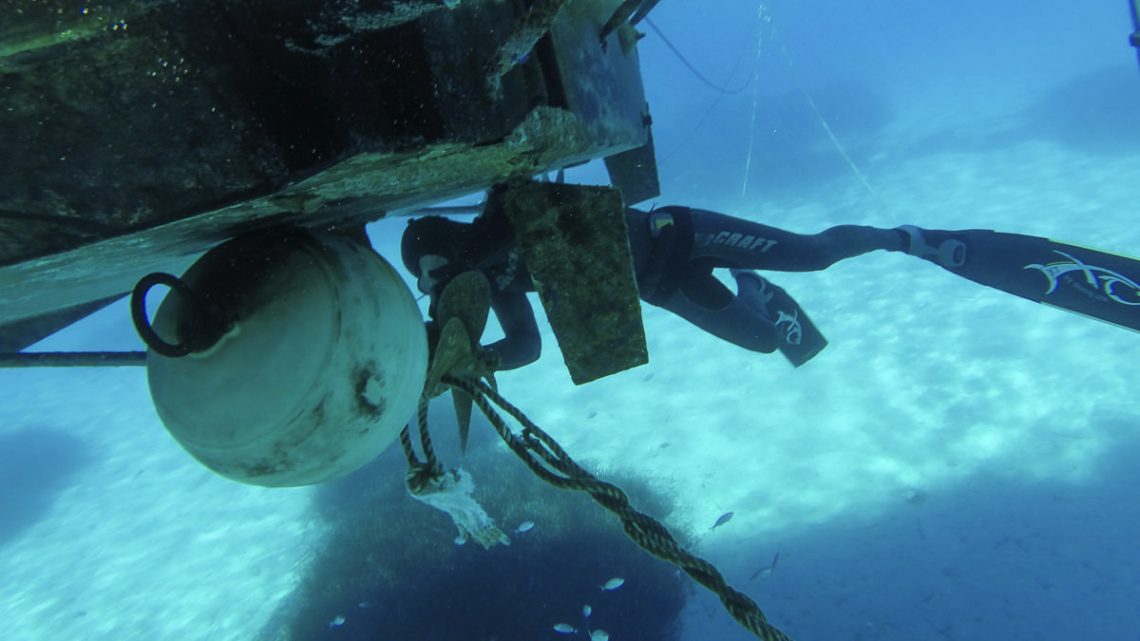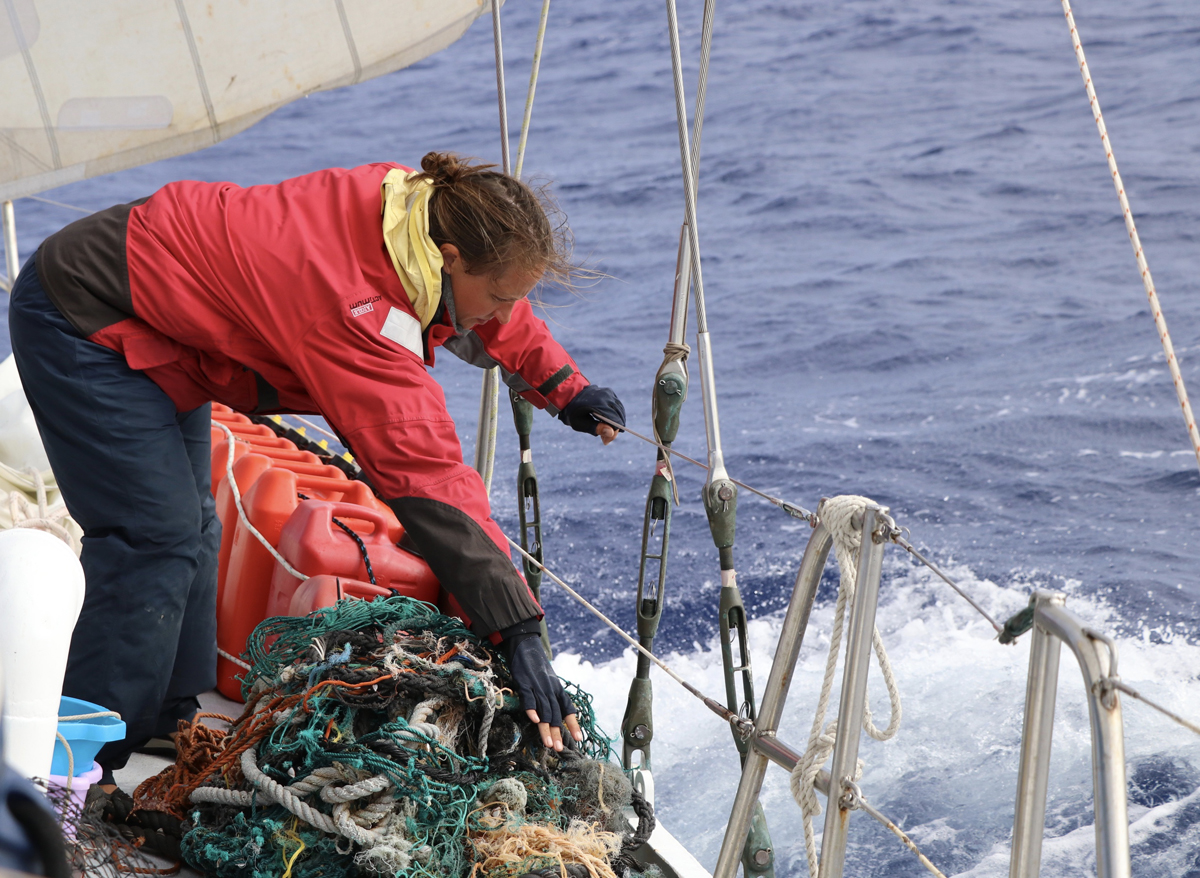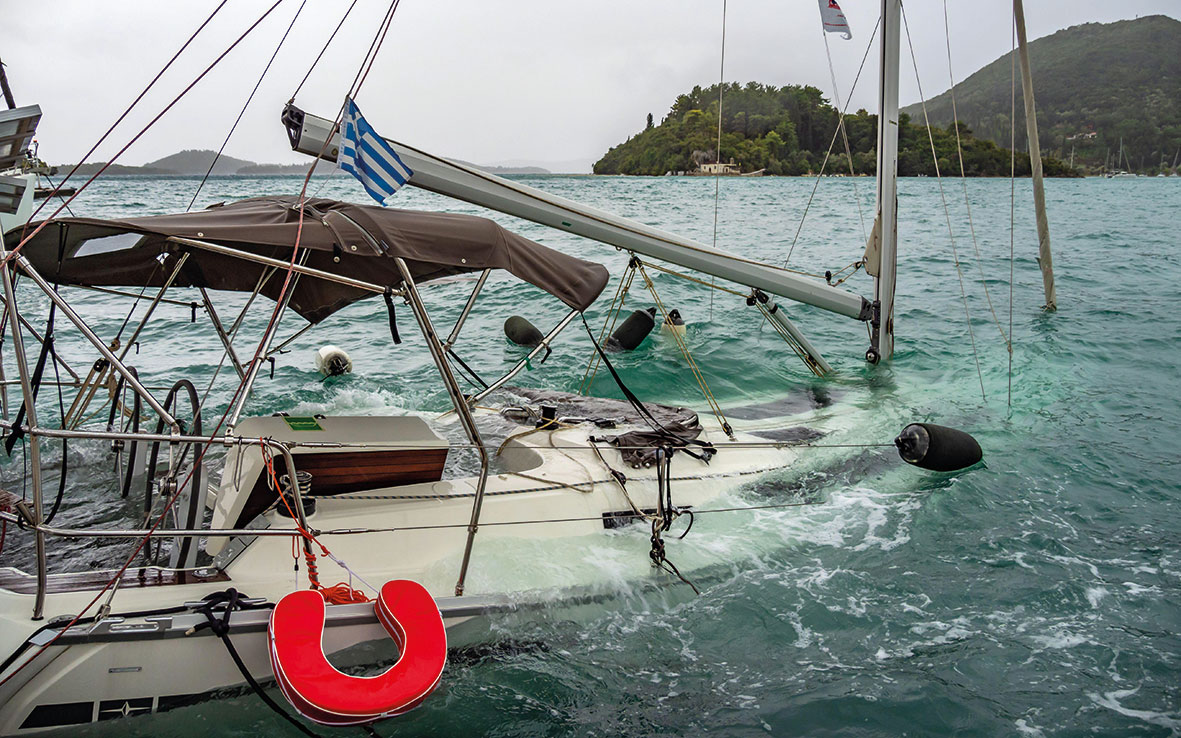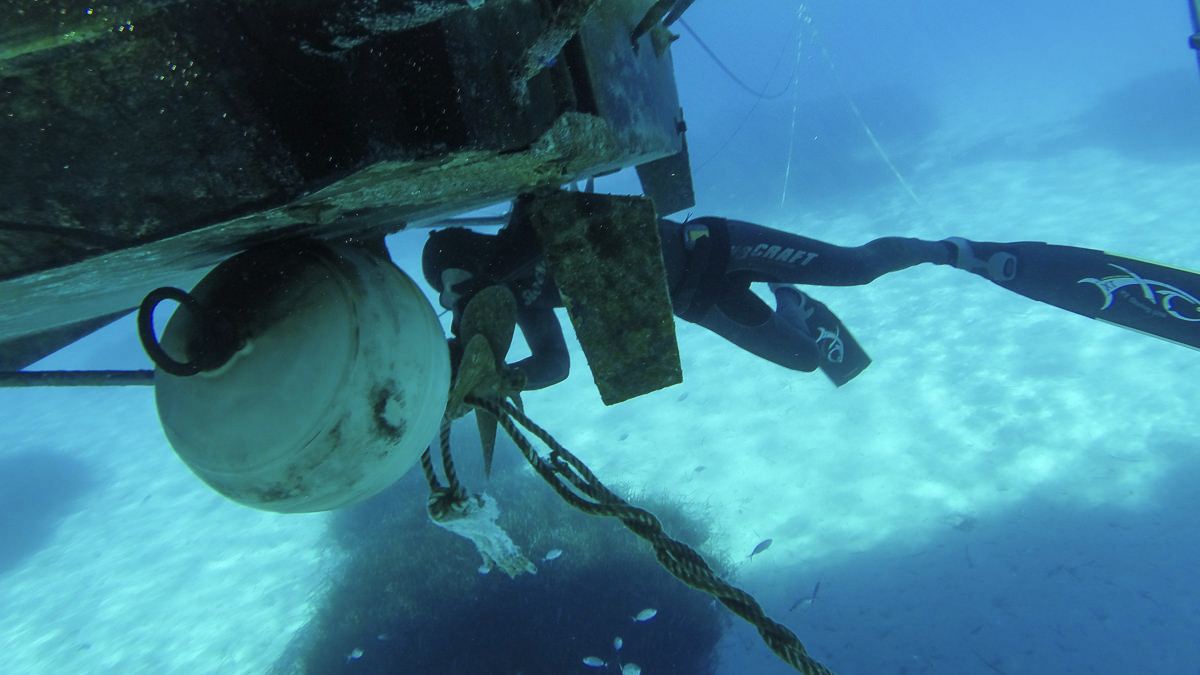
Ropes, nets or plastic entangled in the propeller: Here’s how to get out of this situation
Finding oneself with a rope, a piece of net, a fishing line, or a plastic bag entangled in the boat’s propeller is a fairly common mishap. In most cases, it’s easily resolved; however, depending on the circumstances, it can turn into a real nightmare. This can happen, for example, while entering a harbor or when about to navigate through breakers or a dangerous navigation area. In all these situations, losing engine propulsion can seriously endanger the safety of the boat and crew. Incidents of boaters ending up on rocks due to this problem are not rare.
Rope in the propeller. What to do? Generally, this issue occurs during maneuvering or mooring, but it can also happen in the open sea where, unfortunately, remnants of old nets, ropes, plastic bags, and other trash freely drift. Any of these foreign objects, when forcefully entangled in the propeller, can block the shaft and the propeller blades of the engine. When this happens, a decrease in engine revolutions or an abnormal vibration is usually felt. Immediate action is necessary.

React immediately and secure the boat
When the propeller gets blocked, the engine usually shuts down automatically, and the boat slows down until it stops. If the engine doesn’t shut off on its own, it’s crucial to disengage the gear and throttle as soon as possible. This reduces the strain on the transmission and avoids more severe damage. Sometimes, briefly engaging reverse gear can free the propeller, especially in the case of plastic bags or ropes of not too large diameter. However, if this doesn’t work, it could worsen the situation. Therefore, it’s always best to first turn off the engine and then investigate the problem more thoroughly.
What to Do When a Rope Entangles the Propeller? Once the engine is off, the boat must be secured. This means lowering the sails and stopping the boat, tying it up at the dock if in a harbor, or dropping anchor away from other vessels’ routes. After securing the boat, the next step is to try to solve the problem. A possible solution is to have a good sailor’s knife, wear a mask and fins, and dive to try to free the propeller. The task involves cutting the rope, net, or plastic entangling the propeller, being careful not to cause further damage to the shaft’s seals. However, it’s important to take necessary precautions to prevent accidental engine startup, like disconnecting the starter battery. This operation is only feasible in light wind and calm sea conditions. In very rough seas, the task can be extremely dangerous.

Checks and inspections after the breakdown
If you find yourself in a port, once the boat is secured and moored, it’s advisable to contact the marina’s assistance services. In ports, diving with or without a scuba apparatus to carry out any type of intervention is prohibited, except for professionally qualified personnel authorized by the port authority.
Whether you manage to free the propeller on your own or with the help of a professional, it’s a good practice to closely inspect all affected components afterward. If the engine has been under significant strain, the damage could be serious. First, check the condition of the propeller’s rubber seal. It’s possible for the rope to wrap around the shaft and then be sucked into the seal, causing inevitable damage. In this case, a mechanic’s intervention is necessary. The correct alignment of the shaft, the integrity and alignment of the shaft support, and the engine’s silent blocks should also be checked.
A definitive solution to the problem is to install a cable-cutting system on the propeller shaft. This device uses the shaft’s rotational force to cut any cable that might get entangled around the propeller, resolving at least 80 percent of such situations.
You May Also Like

How wonderful it is to sail between these 3 stunning islands – Elba, Capraia and Corsica
26/05/2025
Caribbean: Grenada, the spice island that charms sailors
29/08/2025





























